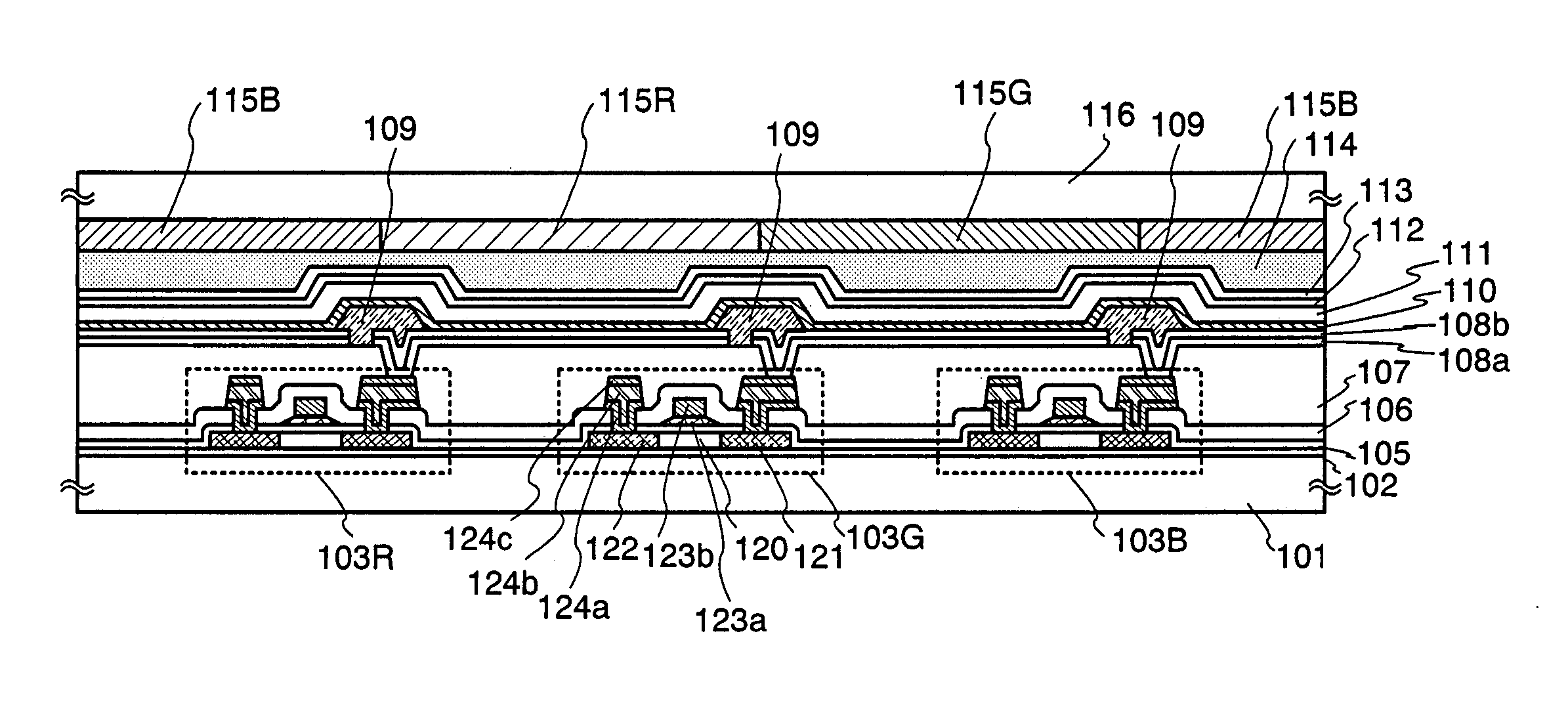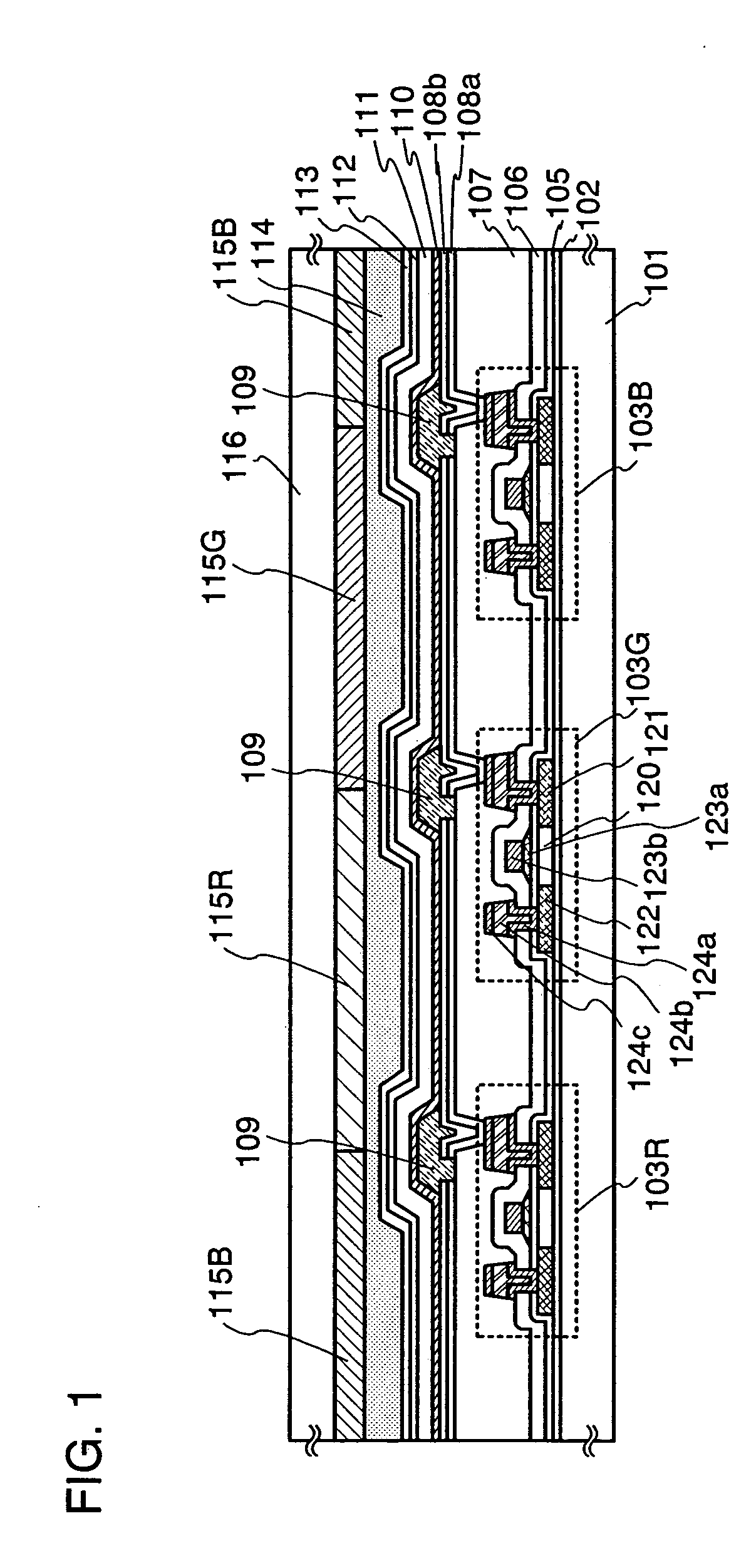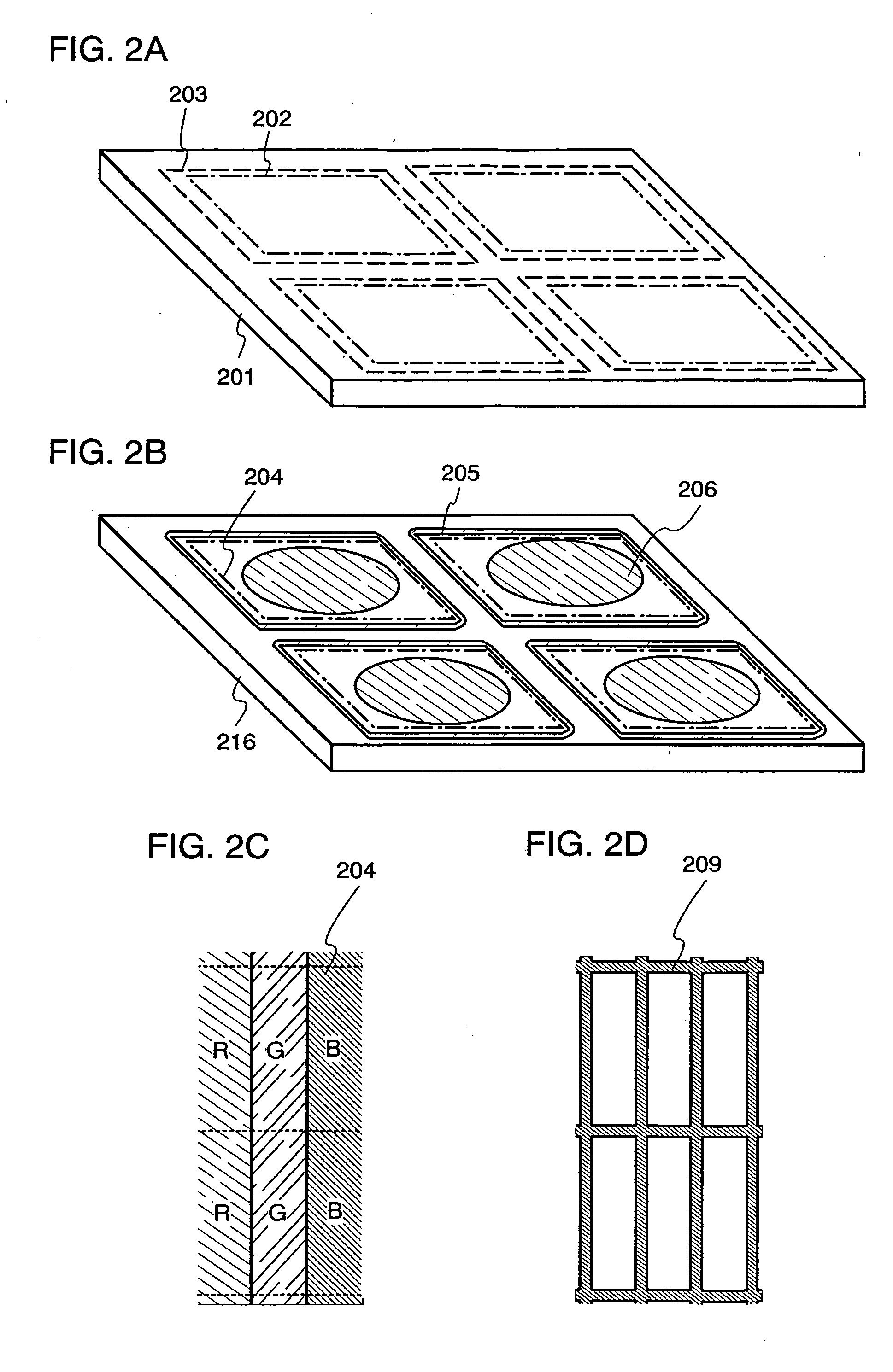Light emitting device, electronic device, and television device
a technology of light emitting devices and electronic devices, applied in the direction of discharge tubes/lamp details, discharge tubes luminescent devices, organic semiconductor devices, etc., to achieve good luminous efficiency, reduce luminance by half, and enhance color purity
- Summary
- Abstract
- Description
- Claims
- Application Information
AI Technical Summary
Benefits of technology
Problems solved by technology
Method used
Image
Examples
embodiment 1
[0083] This embodiment describes an embodiment of manufacturing a top-emission type light emitting device with reference to FIG. 5A First, a base insulating film is formed over a first substrate 401. Any substrate with planarity and thermostability may be adopted as the first substrate 401, without being particularly limited. As the base insulating film, a base film made of an insulating film such as a silicon oxide film, a silicon nitride film, or a silicon oxynitride film is formed.
[0084] Next, a semiconductor film is formed over the base insulating film. A semiconductor layer is formed as described below. A semiconductor film having an amorphous structure is formed by a known method (a sputtering method, a LPCVD method, a plasma CVD method, or the like). Thereafter, a known crystallization processing (a laser crystallization method, a thermal crystallization method, a thermal crystallization method with a catalyst such as nickel, or the like) is performed, thereby obtaining a cr...
embodiment 2
[0109] An example of manufacturing a dual-emission type light emitting device is described in this embodiment with reference to FIG. 5B.
[0110] First, a base insulating film is formed over a light-transmitting first substrate 501. Any substrate with a light-transmitting property may be adopted as the first substrate 501. As a base insulating film, a base film made of an insulating film such as a silicon oxide film, a silicon nitride film, or a silicon oxynitride film is formed.
[0111] A semiconductor layer is formed over the base insulating film as in Embodiment 1. A gate insulating film for covering the semiconductor layer is formed and a gate electrode is formed thereon as in Embodiment 1.
[0112] An n-type lightly doped impurity region, a p-type heavily doped impurity region, an n-type heavily doped impurity region, or the like is formed by doping as in Embodiment 1. Then, a resist mask is removed and an insulating film including hydrogen (a light-transmitting interlayer insulatin...
embodiment 3
[0131] An example of manufacturing a light emitting device using a bottom gate type (inversely staggered) TFT is described in this embodiment with reference to FIG. 6.
[0132] First, a base insulating film 602 is formed over a substrate 601. It is preferable to use an insulating film such as a silicon oxide film, a silicon nitride film, or a silicon oxynitride film (SiOxNy) as the base insulating film 602. Note that the substrate 601 can adopt a plastic substrate with the thermostability that can withstand a processing temperature in this manufacturing process, or the like, besides a non-alkaline glass substrate.
[0133] A conductive film of 100 to 600 nm in a film thickness is formed over the base insulating film 602. An element which is selected from Tantalum (Ta), titanium (Ti), molybdenum (Mo), tungsten (W), chromium (Cr), silicon (Si), scandium (Sc), Nd, Al, or Cu, or an alloy film in which the elements are combined (typically, a Mo—W alloy and a Mo—Ta alloy) can be used for a co...
PUM
 Login to View More
Login to View More Abstract
Description
Claims
Application Information
 Login to View More
Login to View More - R&D
- Intellectual Property
- Life Sciences
- Materials
- Tech Scout
- Unparalleled Data Quality
- Higher Quality Content
- 60% Fewer Hallucinations
Browse by: Latest US Patents, China's latest patents, Technical Efficacy Thesaurus, Application Domain, Technology Topic, Popular Technical Reports.
© 2025 PatSnap. All rights reserved.Legal|Privacy policy|Modern Slavery Act Transparency Statement|Sitemap|About US| Contact US: help@patsnap.com



